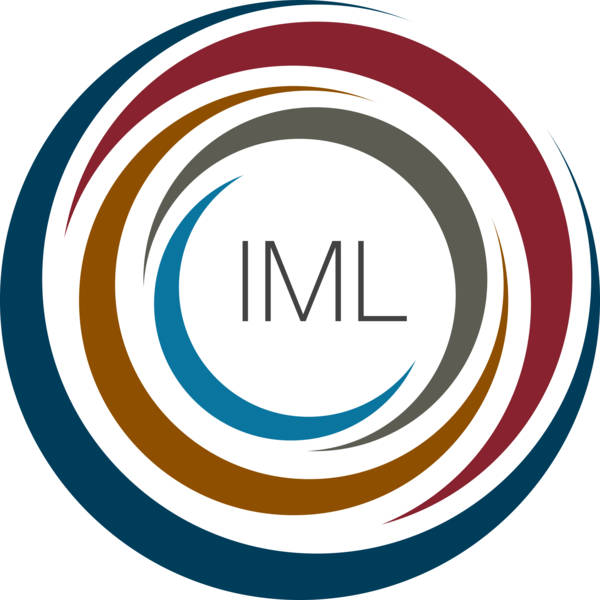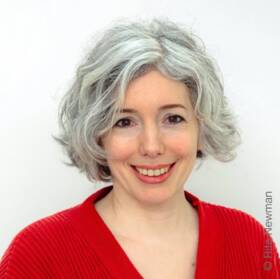The project combines current technological expertise in Augmented and Virtual Reality with interdisciplinary research about immersive storytelling.

Space for Augmented and Virtual Reality
The research project Immersive Media Lab widens the scope of technological developments and their application with regard to AR/VR. Because they have become easily available, these immersive technologies have gained tremendous popularity and sparked new ideas on how to apply them in a diversity of contexts. Similarly, the Immersive Media Lab covers different areas of application and draws inspiration from art, economy, and science. More precisely, it employs state-of-the-art AR and VR technology in five use cases (more on them in the menu on the left-hand side): “Immersive Video Interaction” (IVI), “Intermedia Motion Tracking in AR/VR” (IMTA), “Auditory Augmented Reality in Production” (AARiP), “AR Interfaces for the Industrial Internet of Things” (AIIT), and “Enlightening Patients with Augmented Reality” (EPAR). All of them develop prototypical applications along the lines of immersive storytelling.
Methods and Research Questions
Notions of interactivity and immersion play a significant role when studying storytelling in conjunction with VR and AR. The most basic definition of a “story” requires the consecutive linking of at least two events. More complex versions of this usually have further elements added, which form a linear narrative strand. In addition, opportunities for digital storytelling are manifold: next to linear narrative structures, there are multilinear, episodic, cyclical, or experimental formats with or without interactive components and narrative possibilities offered by data visualization. The Immersive Media Lab covers different fields, including Creative Media, Smart Manufacturing, and Digital Healthcare, each connected to different research contexts, which ask for particular research designs. In conclusion, each use case devised its own “story” according to the defined context, the purpose of the story’s narration, and its media specificity.
The range of narrative possibilities created during this process was transferred to the domain of AR/VR, pursuing the following questions:
- To what extent can well-known storytelling strategies be implemented in AR/VR use cases?
- What potential does storytelling in AR/VR offer for the respective areas of application?
- In which cases is it necessary to develop novel strategies, and to what extent can these strategies be generalized?
Project results
The five use cases illustrate how storytelling in narration, knowledge transfer, and media specificity can be used in various applications across the immersive spectrum. Its potential for each application area is clearly demonstrated. Overall, the project outcomes show that narrative elements explicitly researched and created for the use cases can be applied more broadly to different immersive environments.
The results of immersive storytelling in Creative Media, Smart Manufacturing, and Healthcare are summarized in Storytelling Guidelines (see download below) and a presentation (see video below).
During various co-creation workshops, the results of the Immersive Media Lab were also discussed with an advisory board of experts on-site and online. Finally, the Immersive Media Lab and project partner OpenGLAM.at organized the conference and hackathon "XChange! Reality! Exploring the Future of Current Challenges with Augmented and Virtual Reality" to discuss immersive storytelling and AR/VR for environmental issues, regional development, architecture, tourism, art, industry, and health.
Presentation
Storytelling Guidelines
Publications
You want to know more? Feel free to ask!
Media Creation Research Group
Institute of Creative\Media/Technologies
Senior Researcher
Media Creation Research Group
Institute of Creative\Media/Technologies
Department of Media and Digital Technologies
- FH-Prof. Dipl.-Ing. (FH) Matthias Husinsky
- FH-Prof. Dr. Michael Iber
- FH-Prof. Andreas Jakl MSc
- FH-Prof. Mag. Dr. Rosa von Suess
- FH-Prof. Mag. Dr. Georg Vogt
- FH-Prof. Mag. Markus Wintersberger
- Dipl.-Ing. Clemens Baumann BSc
- Dipl.-Ing. Arian Jalaeefar BSc
- Dipl.-Ing. Christian Jandl BSc
- Dipl.-Ing. Patrik Lechner BSc
- Manuel Mader BSc
- Dipl.-Ing. Christian Munk
- Dipl.-Ing. Lucas Schöffer BSc
- Dipl.-Ing. Johannes Winkler BSc
- Dipl.-Ing. Alexander Schlager BSc
- Dipl.-Ing. Marlen Jachek BA (Hons)
- Stefan Klimpfinger BSc
- Dipl.-Ing. Manuel Schumach BSc



